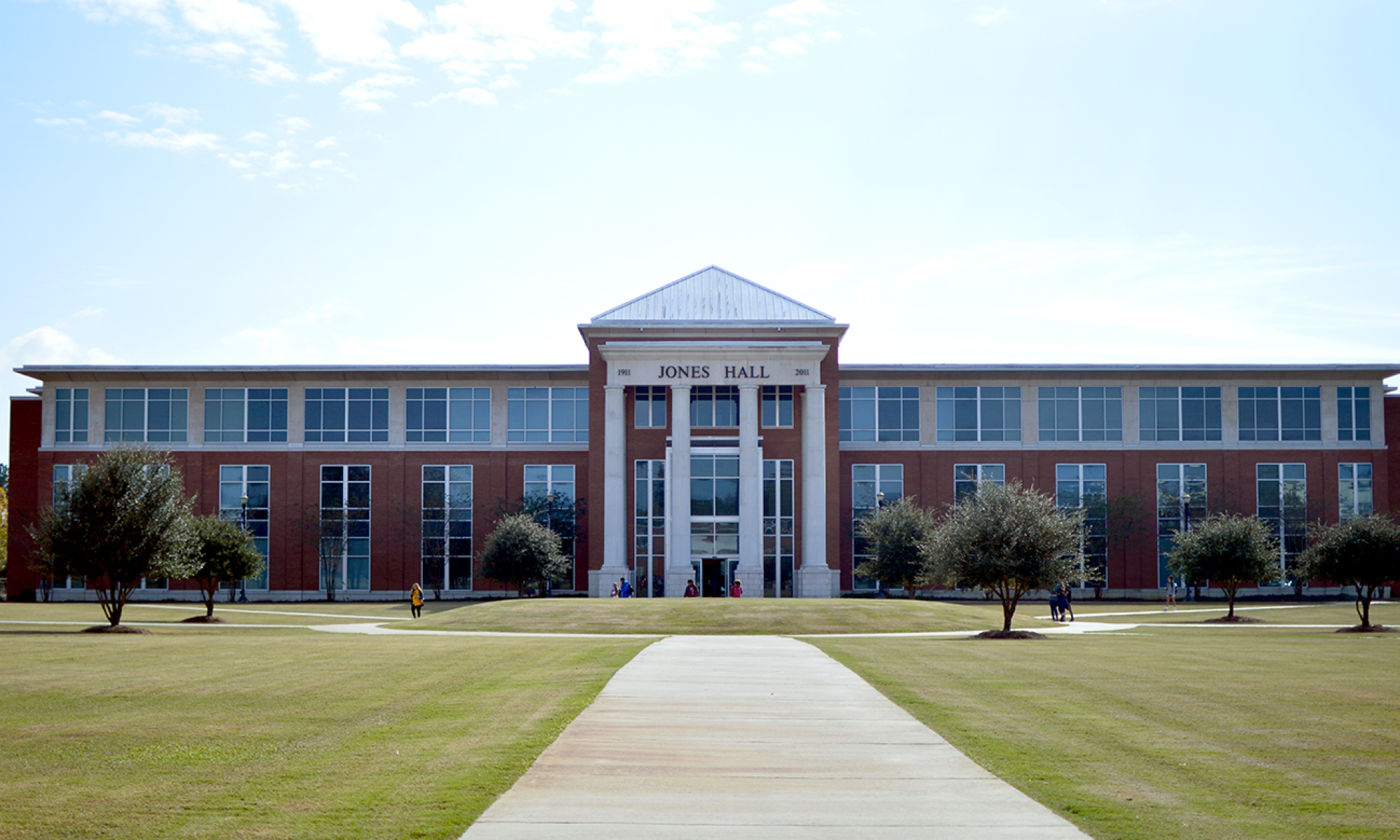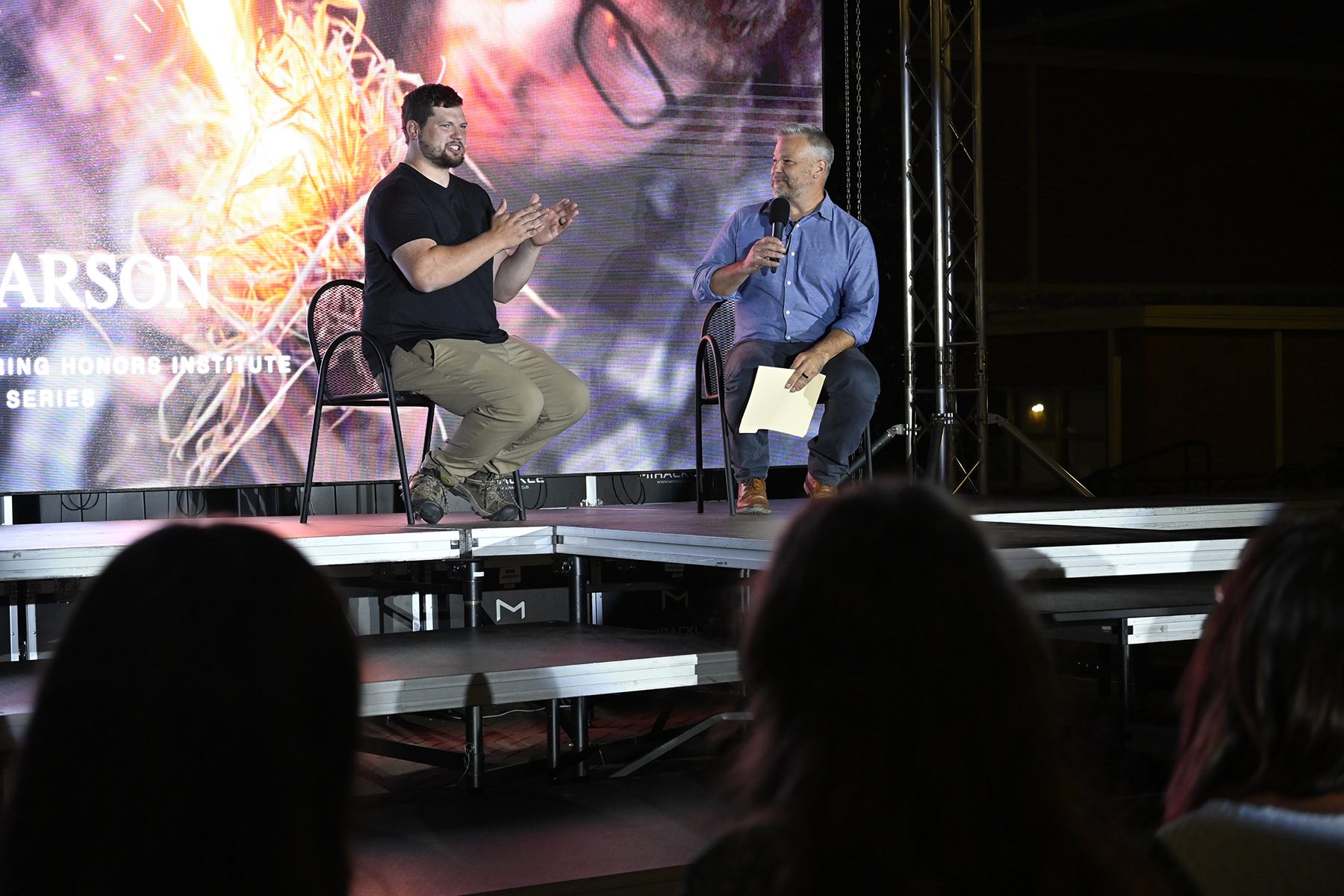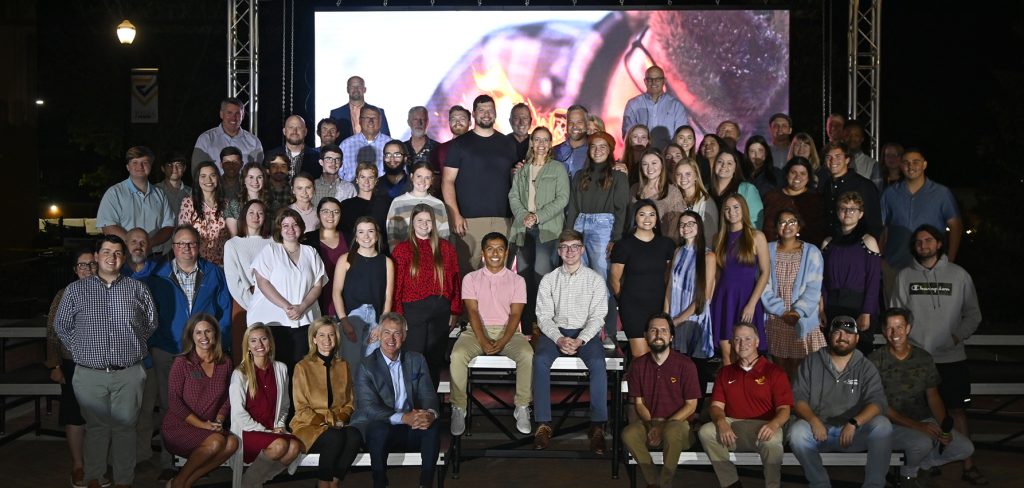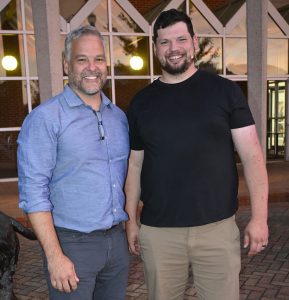
ELLISVILLE – Hearing the stories about surviving the wilderness from the History Channel’s winner of the 5th season of, “Alone-Redemption,” Sam Larson proved to be inspirational to students, administration, and guests of Jones College’s Charles Pickering Honors Institute speaker forum. In preparation for classes and realizing the effects of the Covid-19 Pandemic, Dean of the Honors College, John Stockstill remembered watching Larson when he debuted on the first season of the wilderness survival TV series and considered how Larson could inspire his students.
“I wanted to reach out to someone who had been through some very difficult experiences in life, and when at rock bottom they had nothing left to give, they reached into some deep places in their soul to find that inner strength,” said Stockstill.
In his first visit to the South, Larson admitted to feeling uncomfortable on a college campus. As a high school senior, Larson knew the outdoors was where he wanted to spend his life and not in a classroom or traditional job. A search on the Internet led him to the Jack Mountain Bushcraft Mountain School in northern Maine and the adventure of his lifetime began.
 “When you’re out in the wilderness, something that appeals to me is you’re dealing with the raw element of nature,” said Larson. “It’s just the natural world and human beings. How do these two go together because there is no social hierarchy; mother nature is not playing favorites. It’s just you and the natural world and whatever you can do with the materials in your surroundings. I absolutely loved it!”
“When you’re out in the wilderness, something that appeals to me is you’re dealing with the raw element of nature,” said Larson. “It’s just the natural world and human beings. How do these two go together because there is no social hierarchy; mother nature is not playing favorites. It’s just you and the natural world and whatever you can do with the materials in your surroundings. I absolutely loved it!”
Traveling all over North America, from the Southwest desert to the Canadian Ice Shield, learning from the Northern Quebec Cree Indian, and numerous places in between, Larson learned a variety of survival skills. However, he eventually had to return to Nebraska to work. He began blogging about his adventures in the wilderness and it caught a casting producer’s attention from the History Channel.
“She sent me an email explaining they were exploring survival show ideas as some shows were getting pulled from the networks. She said they were going to take 10 people with 10 survival items and drop them in a remote region where they can’t find each other and whoever lasts the longest wins. They were going to teach them how to use the camera equipment so they would really be alone,” said Larson. “They had an idea that intrigued me. I thought, one, it’s not going to work and two, I have to do this!”
The then 25-year-old Lincoln Nebraska native was invited to appear on the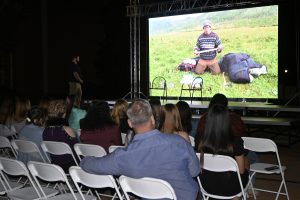 new wilderness survival show for its first season in 2015. His wife Sydney was seven months pregnant with their first child, but he couldn’t pass up the “once in a lifetime” survival challenge. When he learned about the destination, however, he felt under-prepared.
new wilderness survival show for its first season in 2015. His wife Sydney was seven months pregnant with their first child, but he couldn’t pass up the “once in a lifetime” survival challenge. When he learned about the destination, however, he felt under-prepared.
“I’ve traveled to a bunch of places … and I had learned a lot of things at that point, but I didn’t learn or know a lot of the skills really necessary to survive in the coastal British Columbia wilderness. The first thing that caught me off guard, being a kid from Nebraska, was the ocean life.”
Arriving in the Northern British Island of Vancouver, Larson said he felt like he just wasted all his time preparing for something he wasn’t really equipped to do. Adversity hit him hard upon landing on the rainy, stormy coastal island. However, he said he didn’t want to regret not trying or dropping out. Before long, Larson was catching salmon and crabs, trapping rodents, foraging from the sea, and eating limpets from the ocean.
“I kept telling myself, give it all you got, don’t squander this once in a lifetime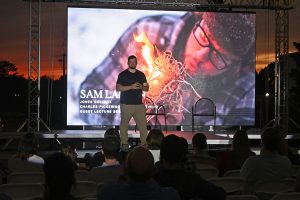 opportunity-don’t mess up! After seven weeks of that, I called on the satellite phone and I tapped out. I gave it my all and I felt OK about it at the time. Soon after they picked me up, I learned there was only one other guy out there,” said Larson.
opportunity-don’t mess up! After seven weeks of that, I called on the satellite phone and I tapped out. I gave it my all and I felt OK about it at the time. Soon after they picked me up, I learned there was only one other guy out there,” said Larson.
After beating eight people, surviving 55 days in an unfamiliar environment, Larson wondered if he had pushed harder, could he have won? Realizing he wouldn’t have another opportunity, he came back to Lincoln and continued working at the Nature Center teaching survivalist skills and leading nature hikes. Amazingly, Larson got another call from the casting director about being on a redemption series of Alone, in 2018, for season 5, of the History Channel show.
“She asked me, ‘How would you like a second, once in a lifetime opportunity?’ I was all over it! I said, ‘Sign me up!’”
When he learned about the new format, bringing back 10 former contestants to Asia, Larson was sure he was going to the jungle or a tropical island. He was surprised to learn the destination was the Kensee Mountains in northeastern Mongolia, 30 miles from Siberia.
“Mongolia and the sheer remoteness of the area, the wildlife, and extreme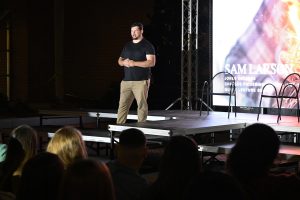 temperatures made this by far, the most dangerous location,” said Larson. “This will be extremely tough, not just the elements and critters and everything that could get you, but you’re competing against a group of people who are extremely experienced, and a group that’s proven they can stay out in the wilderness a long time.”
temperatures made this by far, the most dangerous location,” said Larson. “This will be extremely tough, not just the elements and critters and everything that could get you, but you’re competing against a group of people who are extremely experienced, and a group that’s proven they can stay out in the wilderness a long time.”
When Larson arrived in Mongolia, he said it was like déjà vu, learning all these things that he didn’t know even though he thought he was well prepared. The hardest thing as he arrived was leaving his wife with a 7-day-old baby and a 2-year-old.
“I had this feeling of self-doubt the whole time; Am I doing the right thing by being out here?” said Larson. “The food situation, not to mention the cold was one thing. In August, the winter comes fast out here. The food situation was way worse than British Columbia. It was like there was just nothing to eat.”
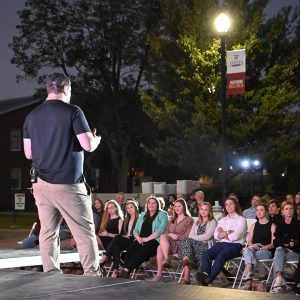 During the 60 days in the frozen tundra, Larson survived on Eurasian voles or little rats he trapped, minnows, snails, grasshoppers, ants, and leeches. The food situation was pretty dire, leaving him with only a few options as winter settled in and the snow piled up. Utilizing a survival trick from his mentor, as finding firewood was a day’s task and food was non-existent, Larson managed to find a way to survive.
During the 60 days in the frozen tundra, Larson survived on Eurasian voles or little rats he trapped, minnows, snails, grasshoppers, ants, and leeches. The food situation was pretty dire, leaving him with only a few options as winter settled in and the snow piled up. Utilizing a survival trick from his mentor, as finding firewood was a day’s task and food was non-existent, Larson managed to find a way to survive.
“The theory was when your body starts to starve, you can compensate for that in some ways by overhydrating it. I got a pot full of water and took whatever I had around, herbs, pine needles, call it ‘tea’ if you like, but there’s no sugar like in the south. It’s hot water.”
Every day for weeks, this was all Larson had and he was thankful. He also had a quote from Winston Churchill that helped him mentally. “Success is failing constantly but moving from failure to failure without a loss of enthusiasm.” Despite his daily failure to find wood and food, that hot cup of water kept him happy enough to get to the medical exam day.
“It was day 60. I remember being really cranky, asking the crew why they were messing with me and my rhythm. They set up a camera and started asking questions and I thought it was weird. ‘Are you eating anything?’ I said, ‘no.’ ‘Are you cold…. happy?’ But after a while, I remembered how dire the situation really was and I started to tear up and began crying,” said Larson. “Out of nowhere, I felt these arms come around me from behind and it was my wife, and she tells me, ‘Sam you just won!’ It was one of the happiest days of my entire life. To go from a totally depraved state to having this warm hug of a loved one, food was on its way and the mission was finally complete.”
Larson shared with the audience that his wife is the unsung hero of the whole experience. Being at home with now, three kids, unable to “tap out” when things got to 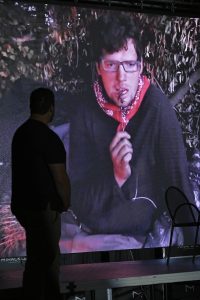 be too much, was very motivational and inspiring to Larson. Also inspired by the experience, was Jones College sophomore from Runnelstown, Gracye Tower.
be too much, was very motivational and inspiring to Larson. Also inspired by the experience, was Jones College sophomore from Runnelstown, Gracye Tower.
“Although he was eating leeches and small bugs and nothing some days, he was happy about being alive. I think a lot of us take being alive for granted. We just expect it to happen every day and it doesn’t. We lose people every day. He was grateful for his hot water. I thought that was very inspirational,” said Tower.
Additionally, Larson advised the audience the best way to prepare is to expect the unexpected and to be gritty. Taking care of business every day, despite the situation, no matter how hard you’re suffering he said, may not mean being tough.
“In Mongolia, in my most vulnerable situation what grit looked like was staring into a cup of hot water day in and day out and deciding not to sulk, but to be thankful for what I had no matter what that thing was, day in and day out. Figure out what you can be thankful for, no matter how small it is or if people think it’s stupid, find the one thing you’re thankful for and focus on that.”
Finally, Larson advised the audience that no matter what we do in life, to find something to care about more. For sophomore Sarah Morgan of Columbia, it reminded her of her top priority in life.
“For me, that translated to my relationship with God. I think that’s what he was hinting at, because that’s how I can apply it in my life. If I don’t get into Physical Therapy school, or I don’t pass the test in the end. It’s not going to ruin me because there’s something more important and to me and it’s God.”
